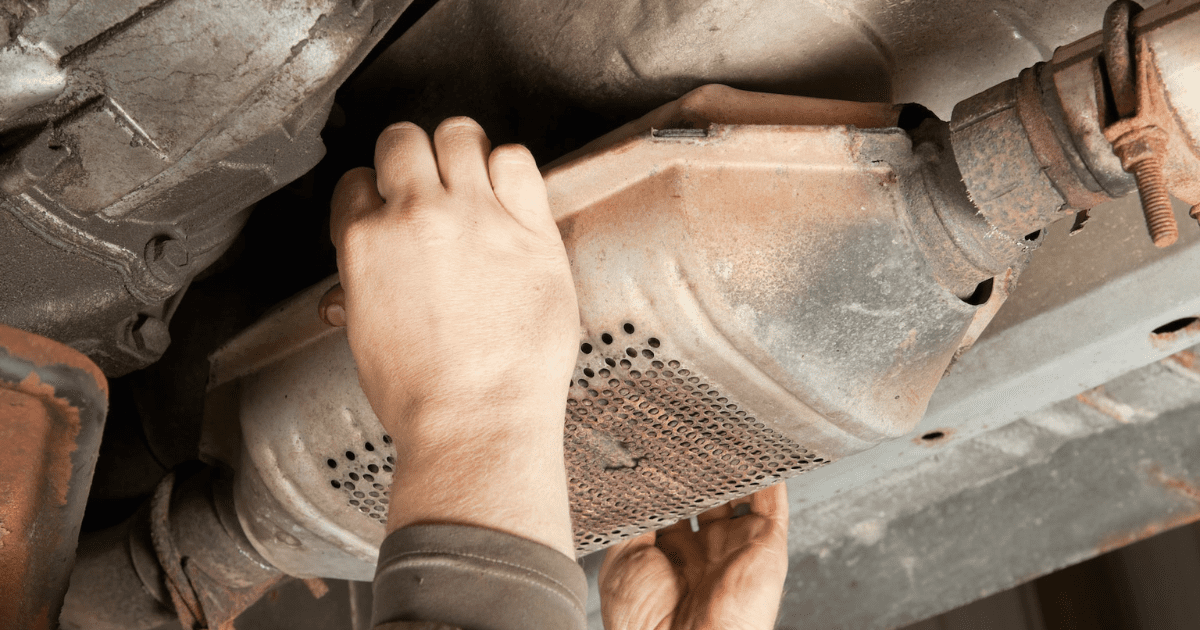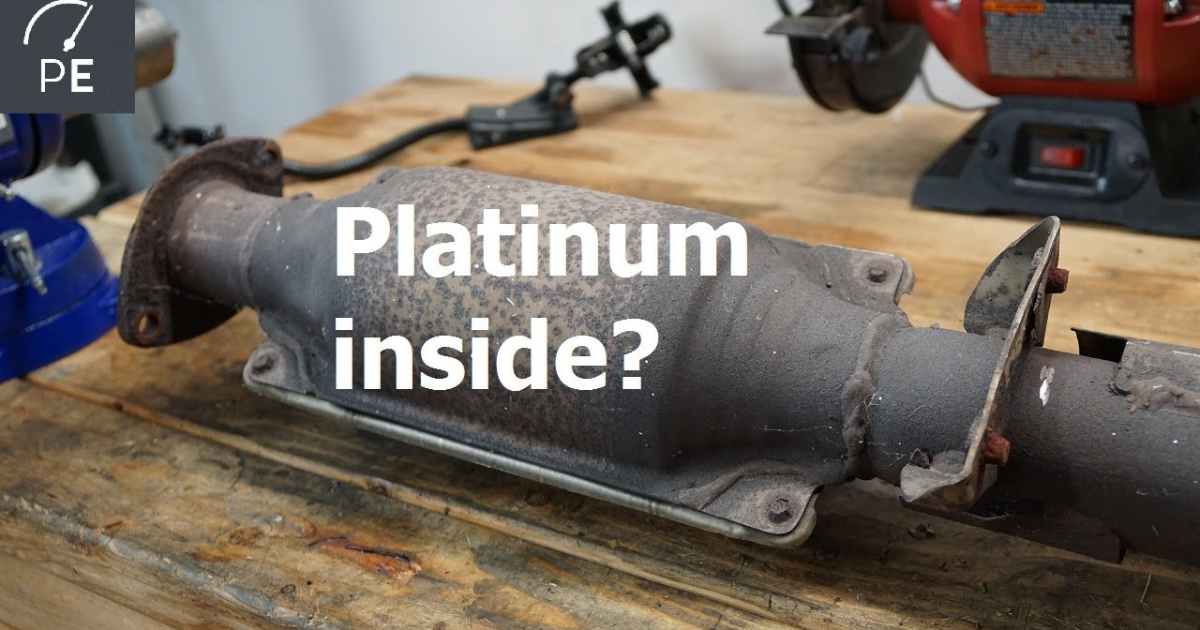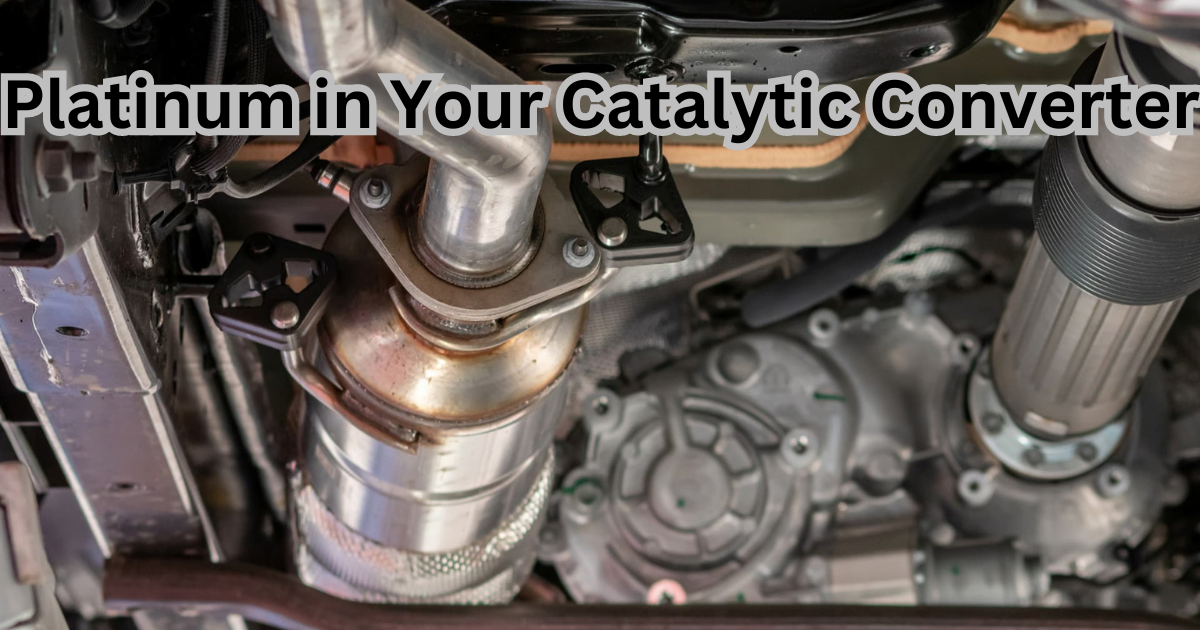So far in 2022, more than 26,000 catalytic converters have been stolen in the United States. Been Verified says that the number of cat converter steals went from about 14,300 in 2020 to almost 65,400 in 2021. Washington has had the biggest rate of theft, which is a shame.
How Much Gold Is In A Catalytic Converter?
Gold isn’t usually used in the catalytic converter of a car right now. What do you mean by “Does a catalytic converter have gold in it?” Platinum, palladium, and rhodium are some of the other rare metals that are in it. These metals are very expensive because they are valuable in business and industry.
On the other hand, gold and platinum were used at the center of the catalytic converter, which was made of aluminum or zinc, before the three main valuable metals took over. Over time, it became clear that platinum, rhodium, and palladium worked better than gold.
For this reason, the three metals listed above became more popular in cat converters because they are the best at breaking down pollutants in car emissions before they are released into the air.
Since they were first used in the catalytic converter, more hackers are interested in the metals now than they were then. Professionals have shown that the catalytic converter contains more than just metals. These valuable metals can be recovered and sold to people in the business and industry sectors who want to recycle them.
It means that thieves wouldn’t want to steal a catalytic converter if the metals inside it had no industrial, business, or economic value.
It’s no longer a secret that the metals in the catalytic converter make it valuable. Because of this, you should keep your car safe, especially at night.

What Is The Reason For Using Gold In A Catalytic Converter?
Even though gold was used in the catalytic converter, platinum, rhodium, and palladium are still present in the part today for the same reason.
Gold used as a catalyst helped get rid of harmful toxins like carbon monoxide, nitrogen oxides, and hydrocarbons that were released into the air when a car’s exhaust was burned.
It was the exact same process as the parts of the catalytic converter that platinum, rhodium, and palladium play. More often than not, a chemical reaction happens when the gaseous toxins touch the hot catalysts in the converter.
Toxic molecules like carbon monoxide, nitrogen oxides, and hydrocarbons are broken down by the chemical process into less dangerous molecules like water and carbon dioxide. Then, the exhaust pipes of the car let the pollution out into the air.
Platinum, palladium, and rhodium have taken over as the most common catalysts in cat converters these days, making gold harder to find. But catalytic converter vandals are still drawn to the value of these catalysts, whether they are gold or one of the other valuable metals used today.
Therefore, the best way to keep thieves from damaging your car’s catalytic converter is to make sure there are safety measures in place around it.
Criminals can use the metals in a converter, and car owners can get some money from the part if any of the metals are found from a used converter. But it is very important to know how to get gold out of a catalytic converter.
Conclusion
Figuring out how much each part of your car is worth helps you value it more. Indeed, cars are pricey not only because of the brand, make, or type. It also matters how much valuables are used in their parts.
If you were wondering how much gold is in a catalytic converter, this piece tells you the truth. Manufacturers now focus on using platinum, palladium, and rhodium as catalysts in new cat converters instead of the component that it used to come in.
The catalytic converter is unfortunately a target for some sketchy people in your area. If you drive any of the above cars, make sure you keep an eye on your catalytic converter at all times.





